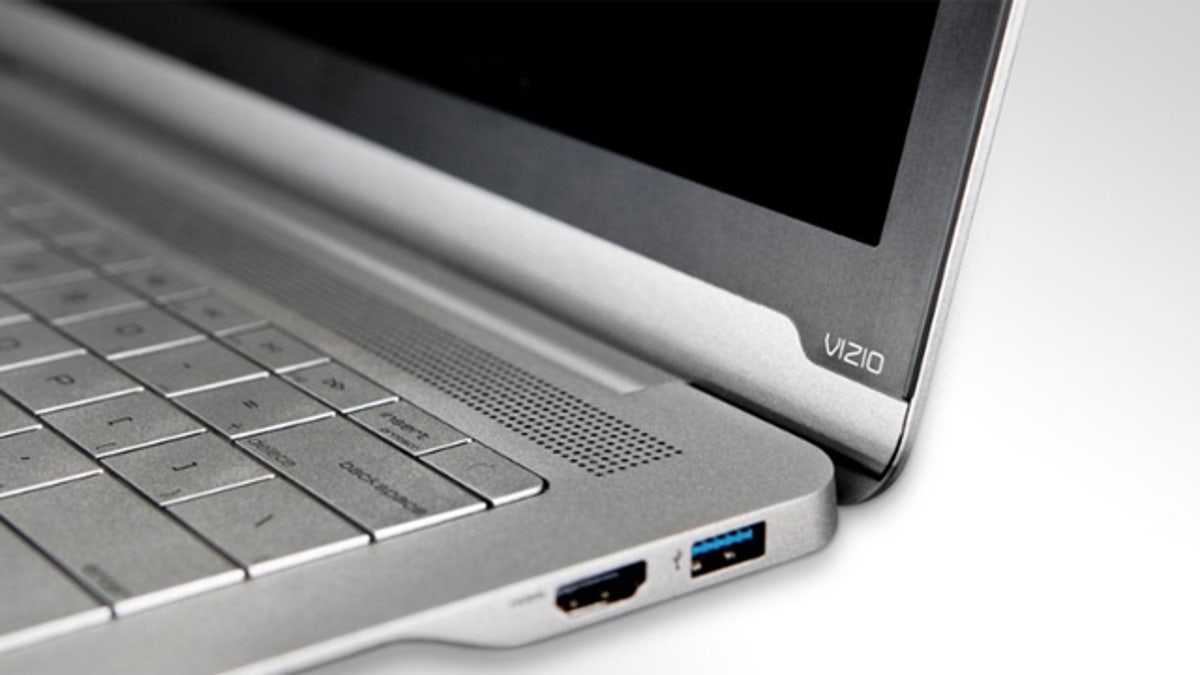
New offerings like these 'ultrabooks' from Vizio are fueling a resurgence in the laptop PC. (Vizio)
Let’s hope Intel has the “power” to make this one happen.
Tech powerhouse Intel Corp. is pushing to at last standardize the rechargeable batteries in laptop computers, pitching manufacturers on a generic design for the cells that make up battery packs. A standard design could allow manufacturers to use generic, off-the-shelf battery modules, meaning this summer’s systems could get cheaper, more serviceable and possibly more powerful.
Intel engineers Samuel Benn and Johnny Cheng pitched the 60mm-by-80mm design for the battery cells -- individual units that look an awful lot like an ordinary AA battery -- in a presentation at the 2012 Intel Developer Forum in Beijing, China, on April 11, according to a story at tech blog Liliputing.
[summary]
The new batteries will be 16mm thick, slightly slimmer than the 18mm batteries usually packaged into laptops. The price could drop by 5 to 10 percent, according to a PowerPoint slide at the blog, and could come in cheap elements consumers could buy at Best Buy and even replace themselves.
The proposal could be a game changer, akin to the switch in cell phones from proprietary chargers to standardized, USB-based chargers.
But Intel envisions the batteries not in the next smartphone but in the flotilla of powerful laptops called “ultrabooks” by companies like Vizio, Asus, Lenovo, Hewlett Packard, Samsung. They were a clear show highlight at the 2012 Consumer Electronics Show, with thin, sleek, light designs that rival the Apple Macintosh Air, and they're due out this summer.
It’s like a rebirth of the laptop PC.
* Hewlett Packard, the world’s largest manufacturer of PCs, is eager to get out of the computer business, but that hasn’t stopped it from debuting the Envy 14 Spectre at CES 2012, an arresting $1,400 slab of glass and metal. The company is targeting the top of the line, with a price tag higher than Apple’s MacBook Air.
* The Toshiba Protégé Z830 is the world’s lightest, said Microsoft CEO Steve Ballmer during a CES keynote -- and smaller, lighter versions of the laptop are in the works.
* Acer kicked off the big tech show with the announcement of the Aspire S5 Ultrabook, which the company called the thinnest of the new crop.
* Samsung has the fancy (and a touch pricey) Series 9 ultrabook. Ballmer called it “stunning – and less than 13 millimeters thick.” But the cheaper Series 5 is just as attractive, comes with a 13- or 14-inch screen -- and will start at $899.
The laptop market will likely change again toward the end of the year, when Windows 8 is unveiled. The forthcoming operating system will feature an entirely new, touch-centric design deemed “Metro” and may drive touch screens and new hardware designs.
Ballmer noted that Windows 8 will be fully backward compatible with Windows 7.
“Every Windows 7 PC will be ready for Windows 8 on Day One,” he promised.
Dude. You might be getting an ultrabook.
